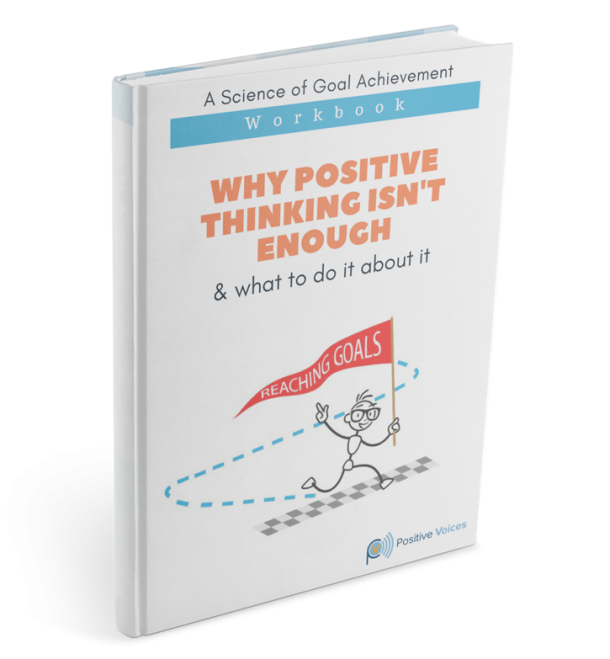There is nothing either good or bad but thinking makes it so. – Shakespeare
In 1998 a group of researchers asked thirty thousand American adults how much stress they had experienced in the past year. They also inquired whether or not the participants believed that stress was harmful to their health. Eight years later the researchers examined public records to see who among these participants had died. They found that high levels of stress reported eight years earlier increased a participant’s risk of dying by 43 percent. However, this was only true for those who believed that stress was harmful to their health. Those who had reported high levels of stress, but who did not view their stress as harmful had the lowest mortality rate of all, even when compared to those who reported very low levels of stress.

This is but one of the paradigm shifting studies recounted in Stanford health psychologist, Kelly McGonigal’s book, The Upside of Stress. “Over the eight years they conducted their study, 182,000 Americans may have died prematurely because they believed that stress was harming their health,” McGonigal writes, in reference to the study described above.Wait. We all know that stress leads to reduced immune function, heart disease, violence, and insomnia; stress triggers depression, debilitating anxiety, and addiction. Stress impairs judgment and performance in countless activities. It’s an insidious killer. Isn’t it? Perhaps you’re aware of a familiar anxious tingling in your body as you read this… That’s ok, and I’m not going to encourage you to relax. This is the first of three articles about stress, its benefits, and how we can learn to utilize it to enrich our lives.
Stress can change our lives for the better. Researchers in an Akron, Ohio hospital, have observed that those with the highest levels of stress hormones immediately following a traumatic accident showed the lowest prevalence of PTSD in subsequent months. John Hopkins University psychologists have found that some degree of stress during pregnancy can relate to newborns with greater biological stress resilience capacity, like superior brain development and better heart rate variability. Exposure to high levels of stress have been shown to encourage empathy and pro-social behavior in executives.
So, the question pleads, how did our understanding of stress become so negatively skewed? If the findings of these studies are true (they are), why are we so afraid of stress?
McGonigal explains that early stress research was conducted primarily on animals subjected to traumatic experiments where the stresses imposed upon them were completely out of their control. These animals were isolated, injected, immersed in water, attacked, and randomly shocked with electricity. When the animals’ health suffered, or they died, researchers blamed the stress response, which they defined as the “response of the body to any demand made on it.”
Thus, demands themselves grew to be feared, especially if they are accompanied by the uncomfortable physical and mental sensations which we commonly refer to as stress.
When and how is stress good?
Prolific stress research has revealed that the potential benefits of stress lies in its chemical composition- the ratio of the chemical composition, to be precise. Two hormones are primarily involved in the stress response: cortisol (responsible for metabolizing food into energy), and DHEA (facilitates brain growth, speeds wound repair, and enhances immune function). When the amount of cortisol in the stress response exceeds the amount of DHEA, stress is considered harmful if experienced chronically. Conversely, when the quantity of DHEA exceeds that of cortisol, the stress response has been shown to offer a multitude of benefits.
How do we produce good stress?
Stress is what happens when something you care about is at stake. –Kelly McGonigal
Stress is what happens when something you care about is at stake. Stress is the response of the body when demands are made upon it. Which definition of stress energizes you more? What one inspires courage, creativity and action? Which definition of stress induces hesitancy and helplessness? How we describe things both influences and reflects what we think about them. In order to experience positive stress we need to think about it and describe it as such.
McGonigal explains that our perspective on stress is a form of mindset, which are “beliefs that shape reality.” This shaping occurs indirectly through the actions that particular beliefs prompt us to take, and directly through physiological responses. For example, when we perceive a stressful situation as negative we’re more likely to approach it hesitantly, and less likely to recognize and utilize all the opportunities that the situation offers. Additionally, when we perceive a scenario as a threat as opposed to a challenge our hearts beat less powerfully, and we release a different and less beneficial mix of hormones into our bodies.
When we perceive a situation as a challenge, and cultivate thoughts about what we could gain from the opportunity (i.e., personal growth or mastery), our minds open to the actions we can take to increase our chance of success, and the desired hormone, DHEA is produced.Additionally, when we assume a challenge perspective our hearts beat faster and with greater strength than when we experience fear. In one study, participants who assumed a challenge mindset about a potentially adverse situation pumped two liters more blood through their hearts than those who considered the situation stressful.
Some wonderfully simple mindset interventions have been shown to change negative perceptions of stress. Stanford psychologist, Greg Walton has utilized the following exercise with great success: First, regarding a potentially stressful situation, take time to gather information that can support the “stress as a challenge” perspective that you’re seeking. For example, if you’re preparing for an important job interview consider all the reasons why you’re a great fit for the job, all the strengths you bring to the organization, and the valuable experience you’ll gain regardless of whether or not you’re hired. Second, carry out an activity that helps you enact the desired perspective. Using the example of the job interview you could write about your suitability for the job, and what you have to gain from the experience regardless of the outcome.Finally, find an opportunity to share your perspective with another.
Walton’s intervention, which is approximately one hour in duration and carried out only once, has shown long-term effects. For example, Ivy League university freshmen struggling to feel like they fit in at school wrote about how they were feeling while also acknowledging that they were not the only ones experiencing concerns about not fitting in. The observed benefits of rethinking stress in this way were still present four years later when they graduated.
Complimentary to McGonigal’s definition of stress, which is what happens when something meaningful is at stake, finding meaning in potentially stressful situations can be an effective way to rethink it. Stanford psychologist, Alia Crum has used the following intervention to utilize meaning as a means to rethink stress: begin by acknowledging stress when you feel it, non-judgmentally and without attempting to change it. Next, welcome the stress as a response to something you care about. Finally, make use of the energy that stress gives you to address the challenge at hand.
Stress is energy
“Where in your body do you feel fear?” I asked a group of college athletes this morning.Expressions appeared temporarily vacant as they considered my question. Some hands traveled to chest and abdomen.
“In my stomach,” replied someone.
“In my chest… my heart beats fast,” commented another.
“Where in your body do you feel excitement?” I asked, trying to maintain a neutral profile.
Among a few puzzled faces emerged some sly grins. “In the same places,” they smiled.
So smile friends, when you feel your body come alive in a meaningful moment. Consider all the growth it could bring you. Rethink a perceived threat into an opportunity, and share your perspective with someone. In doing so you’ll change your world for the better, and reap the benefits of positive stress.

